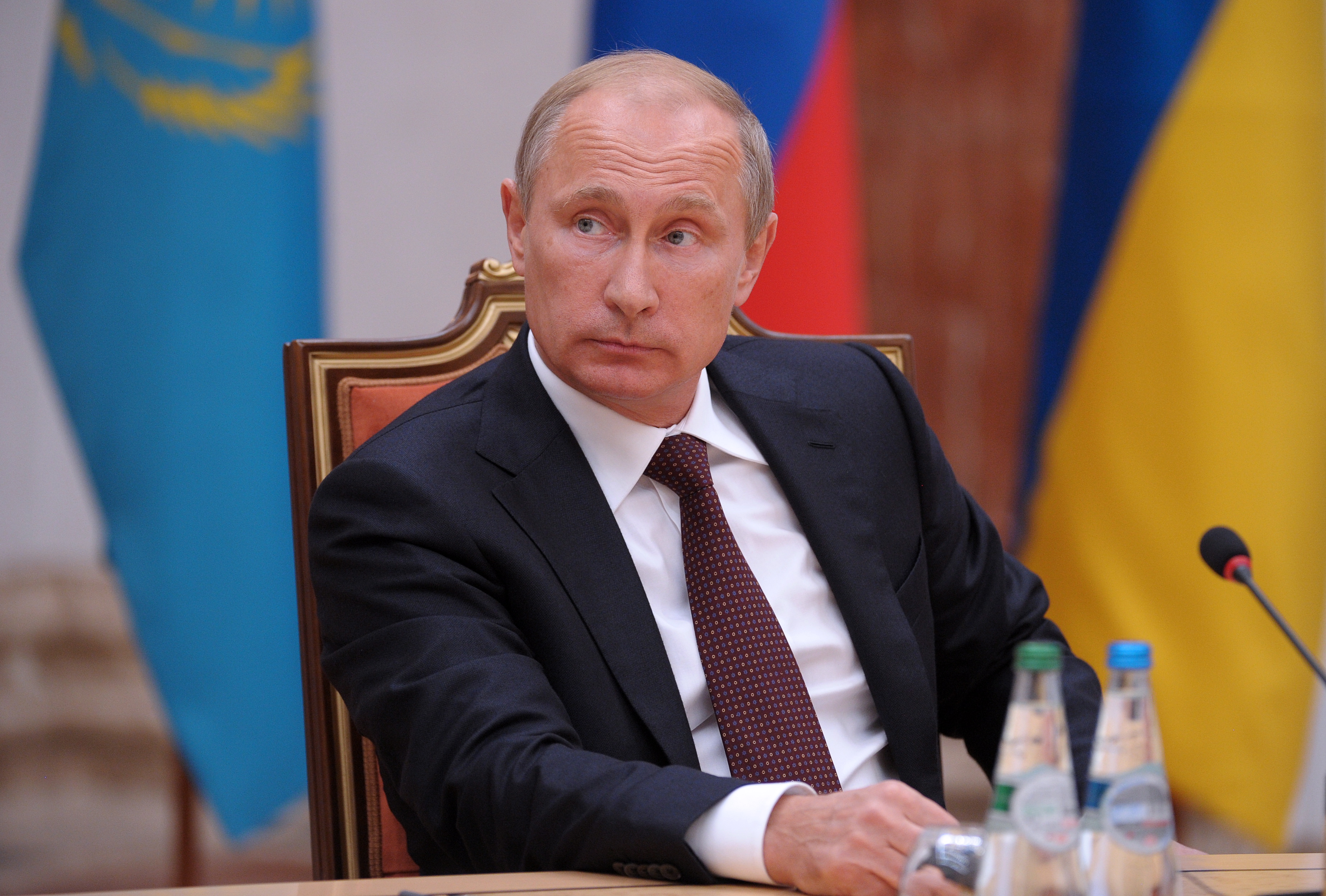ID :
339126
Tue, 08/26/2014 - 16:55
Auther :
Shortlink :
https://oananews.org//node/339126
The shortlink copeid
Boosting Customs Union’s cooperation with Ukraine good but hardly possible - Putin

MINSK, August 26 (Itar-Tass) - Russian President Vladimir Putin said Tuesday that more intensive cooperation between the Customs Union of Russia, Belarus and Kazakhstan on the one hand and Ukraine on the other would be useful but added that it was hardly possible due to Kiev’s association deal with the European Union.
“In our view, it would be expedient to not only preserve but considerably boost interaction,” Putin said at a meeting of the leaders of the Customs Union and Ukraine.
“But the question arises whether it is possible to achieve these goals if the Association Agreement between Ukraine and the EU really starts working,” the Russian president emphasized.
Putin said Moscow does not doubt Ukraine’s right to self-determination.
“Russia has certainly always respected and will respect the sovereign choice of any people, any country in organizing their own political life and unions, both military and economic,” he said. “But we hope this will take place not to the detriment of other players on the international arena and not at our expense.”
Ukraine is closely integrated into the economic space of the Commonwealth of Independent States (CIS, a loose association of former Soviet republics), Putin said, adding that it, in essence, along with Russia, Belarus and Kazakhstan, is an integral part of the world’s largest economic complex.
The four countries’ companies have close connections in all basic spheres and have arranged unique production chains, the Russian leader said.
The Customs Union member states are Ukraine’s key foreign trade partners with trade reaching $50 billion in 2013 and $22.7 billion in the first six months of 2014. The Customs Union’s market accounts for 30 percent of Ukraine’s exports. The volume of Russian capital in Ukraine’s banking system has reached some 32 percent.
Putin also recalled that the four countries have formed a solid legal framework of cooperation. In particular, in 2011, CIS member states signed a free trade area agreement, and now deals are being drafted on free trade in services, on state procurement and pipeline transit.
Ukraine has been in deep crisis since the end of last year, when then-President Viktor Yanukovich suspended the signing of the association agreement to study the deal more thoroughly. The move triggered mass riots that eventually ended with a coup in February 2014.
The Crimean Peninsula did not accept the new authorities in Kiev. It seceded from Ukraine and reunified with Russia in mid-March 2014 after a referendum. Crimea’s example apparently inspired residents of Ukraine’s southeast who did not recognize the coup-imposed authorities either, formed militias and started fighting for their rights.
Kiev’s military operation designed to regain control over the breakaway Donetsk and Lugansk regions, which on May 11 proclaimed their independence at local referendums, involves armored vehicles, heavy artillery and attack aviation and has claimed hundreds of civilian lives and caused hundreds of thousands of people to flee Ukraine’s southeast.
The association agreement with the EU was eventually signed on June 27 under the new president, Western-leaning billionaire businessman and politician Pyotr Poroshenko, who won the May 25 early presidential election in Ukraine set by the provisional Kiev authorities.
Poroshenko, dubbed “the chocolate king” because his structures control Ukraine’s Roshen confectionery manufacturer, had funded anti-government protests that led to February's coup.
Learn more on itar-tass.com





